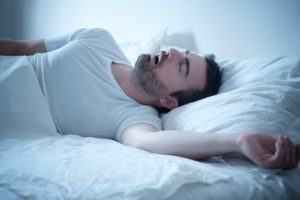
Every night, millions of people miss out on countless hours of sleep because of sleep apnea—and even worse, many more cases go undiagnosed! But before you can receive a diagnosis and receive treatment, you might have to undergo an at-home sleep apnea test. Here’s what you can expect throughout this process and some things you can do to prepare yourself for it.
What Is an At-Home Sleep Test?
Simply put, an at-home sleep test is an easy, cost-effective way to figure out whether you’re having trouble breathing during sleep. The test needs to be prescribed by your primary care physician or a sleep clinic; it’s not something that you can go pick up at the store. You’ll be given a monitoring device with multiple sensors attached, including a small probe that’s worn over your fingers (to measure oxygen levels) and a breathing mask to be securely placed on your nose. There are also other sensors placed on your chest and abdomen to measure their movement as you rest.
It might seem complicated, but an at-home sleep test is actually a relatively small and straightforward commitment—and it’s usually for just one night! You’ll be given instructions on how to attach the sensors to your body and how to operate the monitoring device and breathing mask. As you sleep, the device will keep track of your oxygen levels and breathing pattern. By the morning, the device will have gathered enough data to determine if sleep apnea is influencing your sleep. From there, a sleep expert can determine an appropriate course of treatment action.
How Can I Prepare for an At-Home Sleep Test?
There aren’t any special preparations that you need to make in advance of an at-home sleep test; in fact, following your regular routine is ideal! You’ll just have to set up the device once you’re ready for bed. That said, if you’re concerned about not being able to fall asleep on the evening of the test, avoid taking any daytime naps, drinking caffeine or other stimulants, or doing anything else that might disrupt your normal sleeping patterns. You should also try to sleep in the same position that you would on a normal night; sleep apnea symptoms tend to be worse for those who sleep on their backs.
Completing your at-home sleep apnea test will bring you one step closer to receiving sleep apnea treatment and getting back to bed. If you believe sleep apnea is the source of your sleep disruption, don’t hesitate to speak with your dentist about treatment options.
About the Author
Dr. Randy Machen has proudly served patients and families in the Little Rock area for over 30 years! Dr. Machen received his dental doctorate from the University of Tennessee and is a member of several professional organizations including the American Dental Association, the Arkansas State Dental Association, and the Center District Dental Society. If you have any questions about sleep apnea, don’t hesitate to reach out to Dr. Machen either online or over the phone: (501) 954-9900.
